
Meandrusa sciron, the brown gorgon, is a species of swallowtail butterfly found in parts of South Asia and Southeast Asia. It belongs to the hooked swallowtails genus, Meandrusa, of the family Papilionidae. The brown gorgon is found in India from Sikkim to Assam and north Burma and is not considered to be threatened. Though not uncommon, it is protected under Indian law under the name gyas.

Meandrusa payeni, the yellow gorgon, is a species of swallowtail found in parts of South Asia and Southeast Asia. It belongs to the hooked swallowtails genus, Meandrusa, of the family Papilionidae. It is also called the outlet sword or the sickle.

Charaxes marmax, the yellow rajah, is a butterfly found in India that belongs to the rajahs and nawabs group, that is, the Charaxinae group of the brush-footed butterflies family.

Miletus symethus, the great brownie, is a small butterfly found in India that belongs to the lycaenids or blues family. The species was first described by Pieter Cramer in 1777.

Niphanda cymbia, the pointed Pierrot, is a small butterfly found in northern India, Burma and northern Borneo that belongs to the lycaenids or blues family.

Jamides kankena, the glistening cerulean, is a small butterfly found in India that belongs to the lycaenids or blues family.
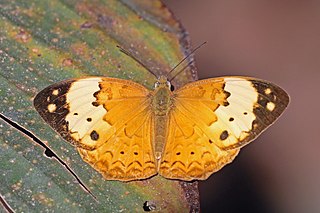
Cupha erymanthis, the rustic, is a species of brush-footed butterfly found in forested areas of tropical South Asia and Southeast Asia. The males and females are identical.
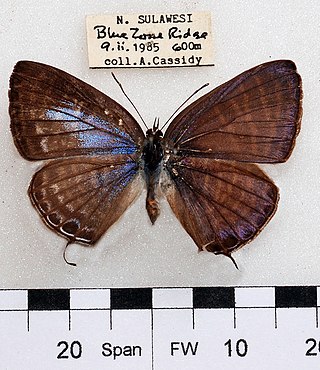
Nacaduba pactolus, the large four-line blue, is a species of lycaenid butterfly found in Indomalayan realm.

Petrelaea dana, the dingy lineblue, is a species of lycaenid butterfly found in Indomalayan realm.
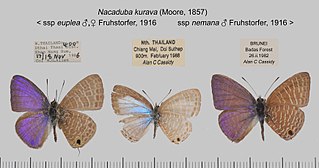
Nacaduba kurava, the transparent six-line blue, is a species of butterfly in the family Lycaenidae found in Asia and Australia. The species was first described by Frederic Moore in 1857.

Nacaduba hermus, the pale four-line blue, is a species of lycaenid butterfly found in Indomalayan realm. The species was first described by Baron Cajetan von Felder in 1860.
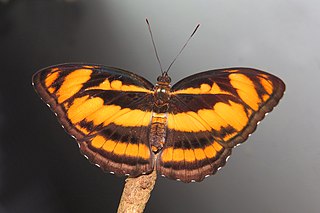
Athyma nefte, the colour sergeant, is a species of brush-footed butterfly found in tropical South and Southeast Asia.
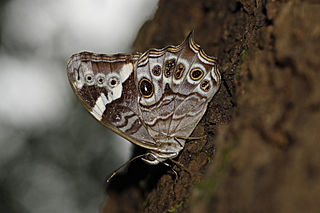
Lethe rohria, the common treebrown, is a species of satyrine butterfly found in Asia.

Vindula erota, the common cruiser, is a species of nymphalid butterfly found in forested areas of tropical South Asia and Southeast Asia.
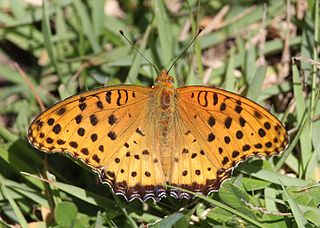
The Indian fritillary is a species of butterfly of the nymphalid or brush-footed family. It is usually found from south and southeast Asia to Australia.

Stichophthalma nourmahal, is a South Asian butterfly that belongs to the Morphinae subfamily of the brush-footed butterflies family.

Enispe euthymius, the red caliph, is a species of nymphalid butterfly found in Southeast Asia.

Vagrans is monotypic genus with the species vagrant a species of nymphalid butterfly found in forested areas of tropical South Asia and Southeast Asia.

Catochrysops strabo, the forget-me-not, is a small butterfly found in Asia that belongs to the lycaenids or blues family. The species was first described by Johan Christian Fabricius in 1793. It is found in Sri Lanka, India, from Sikkim to Indochina and in Sundaland, Sulawesi and the Philippines.
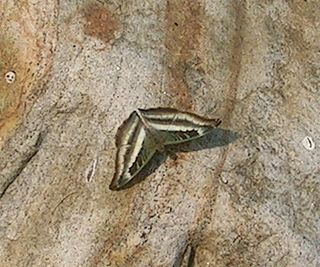
Auzakia is a monotypic butterfly genus in the family Nymphalidae. It contains the single species, Auzakia danava, the commodore, which is found from Tibet to Sumatra.




















